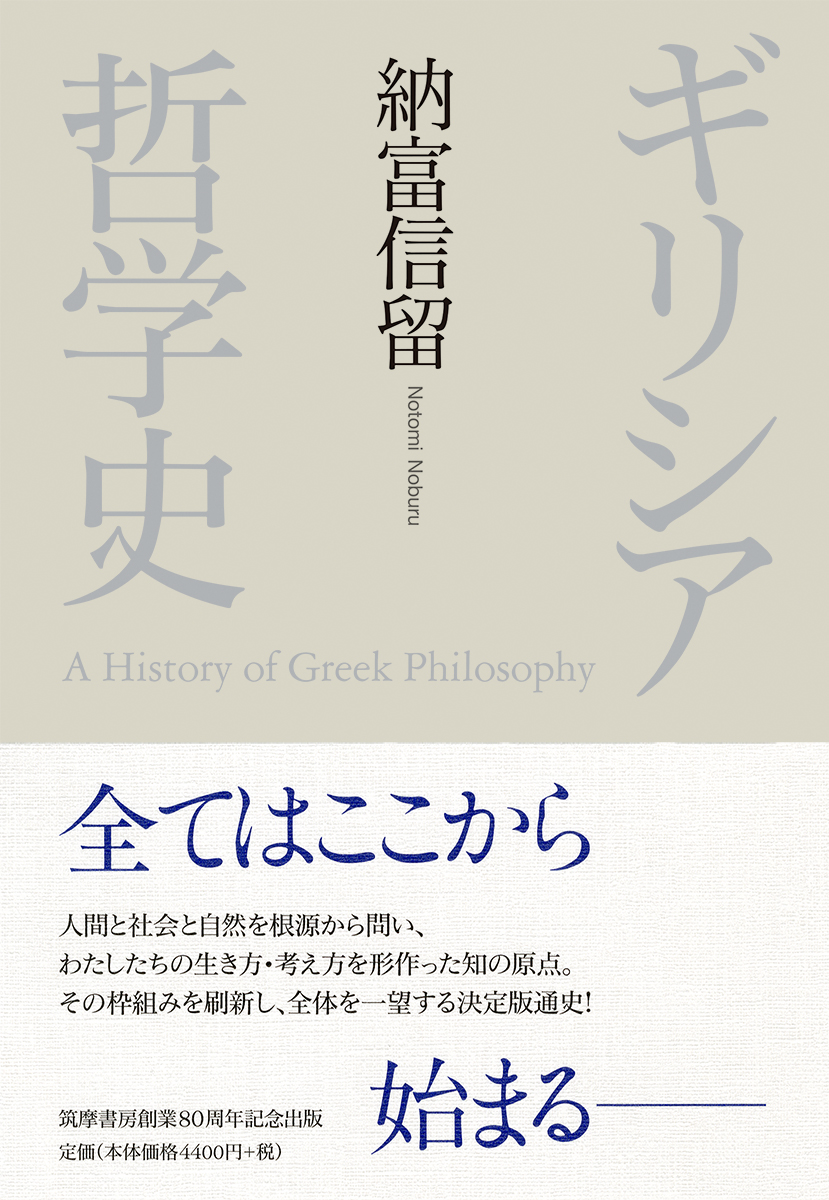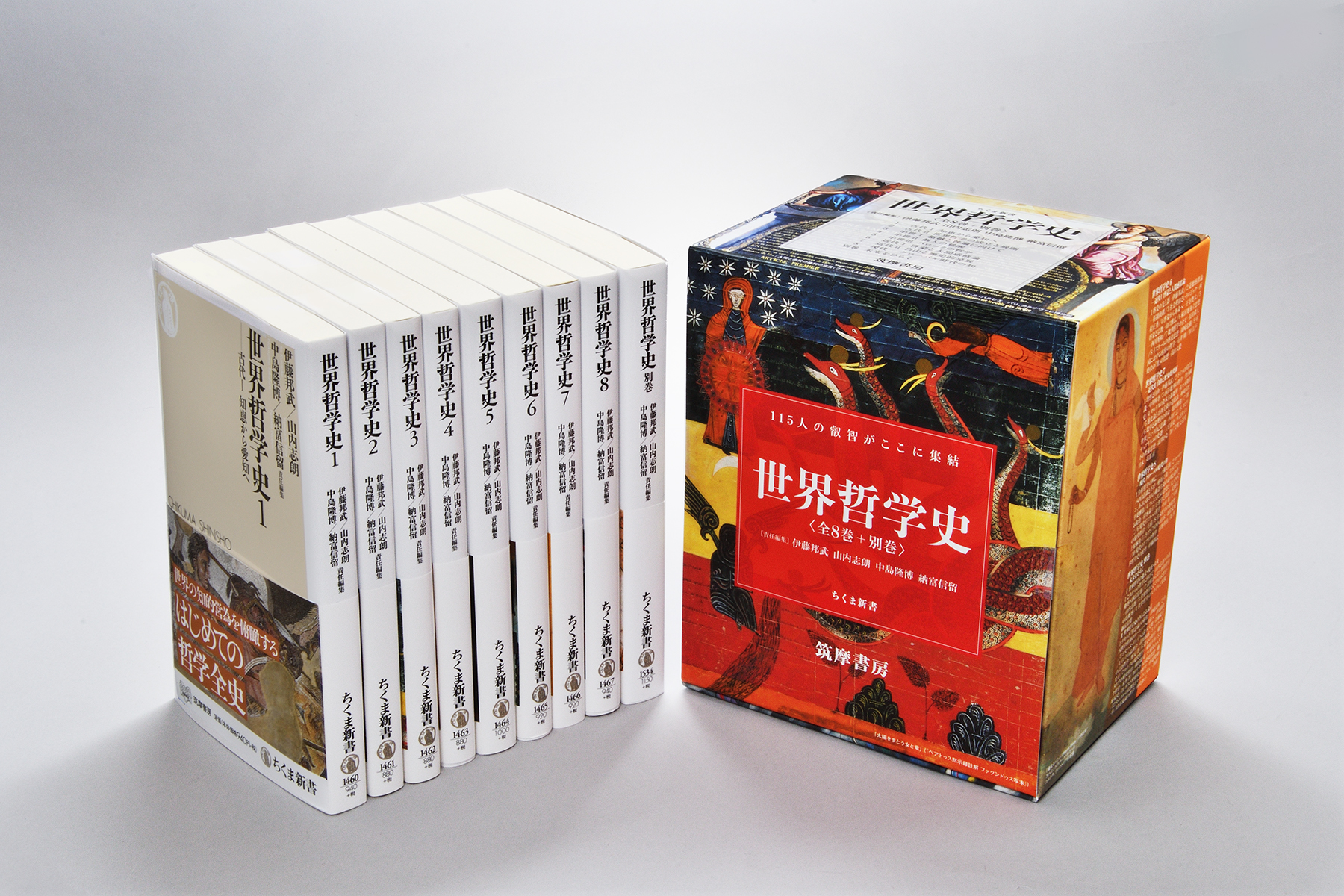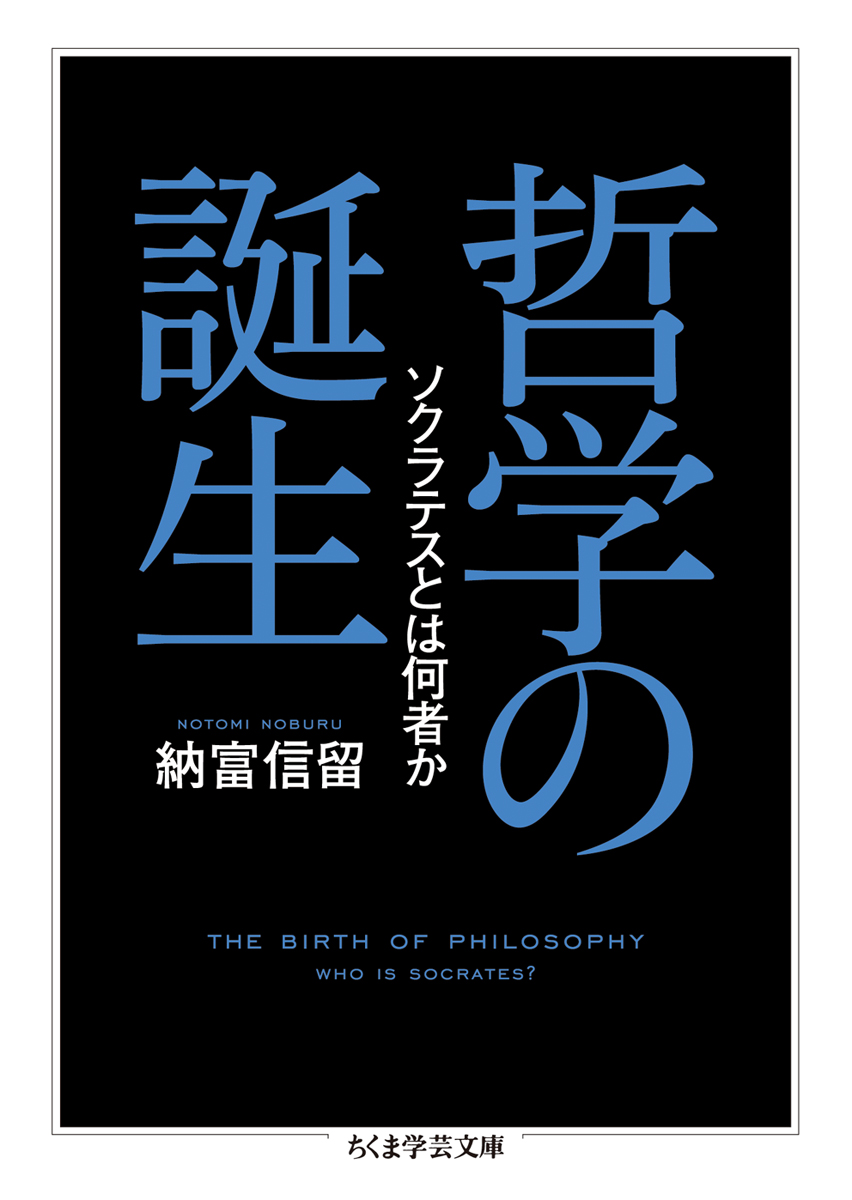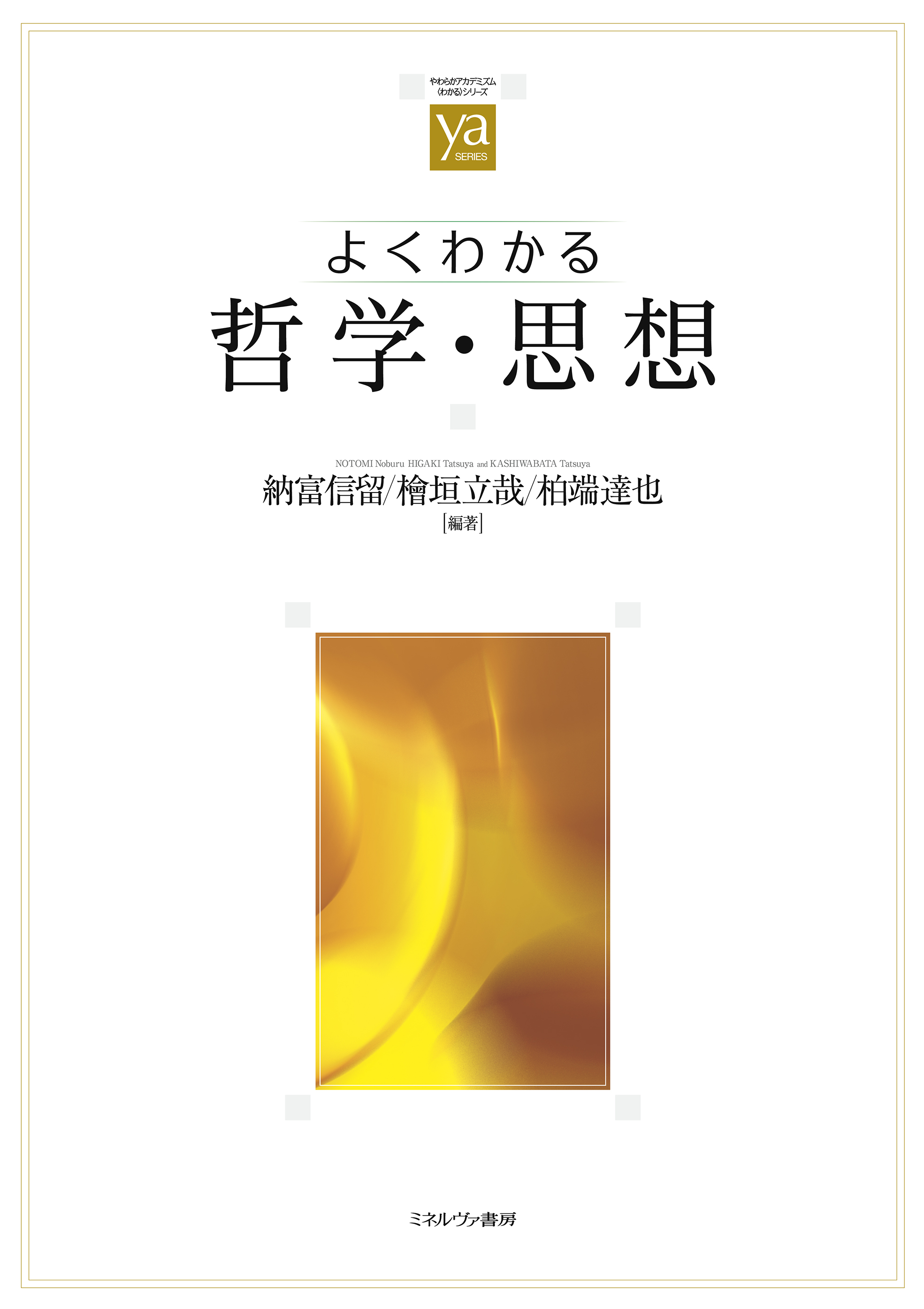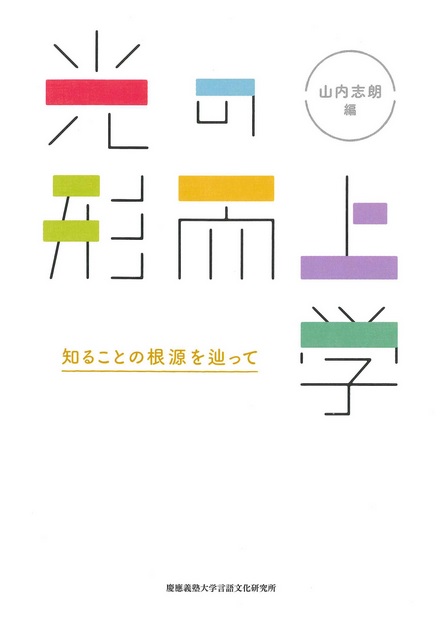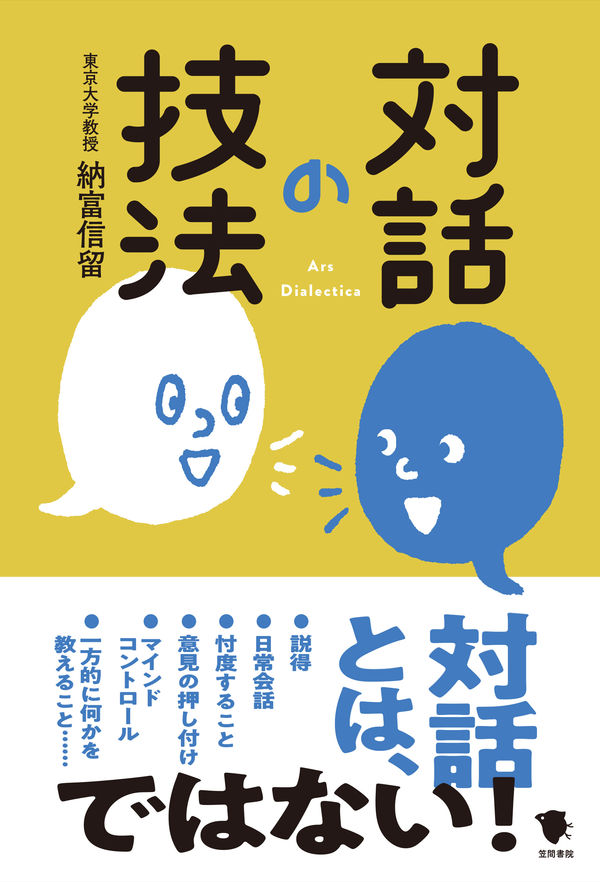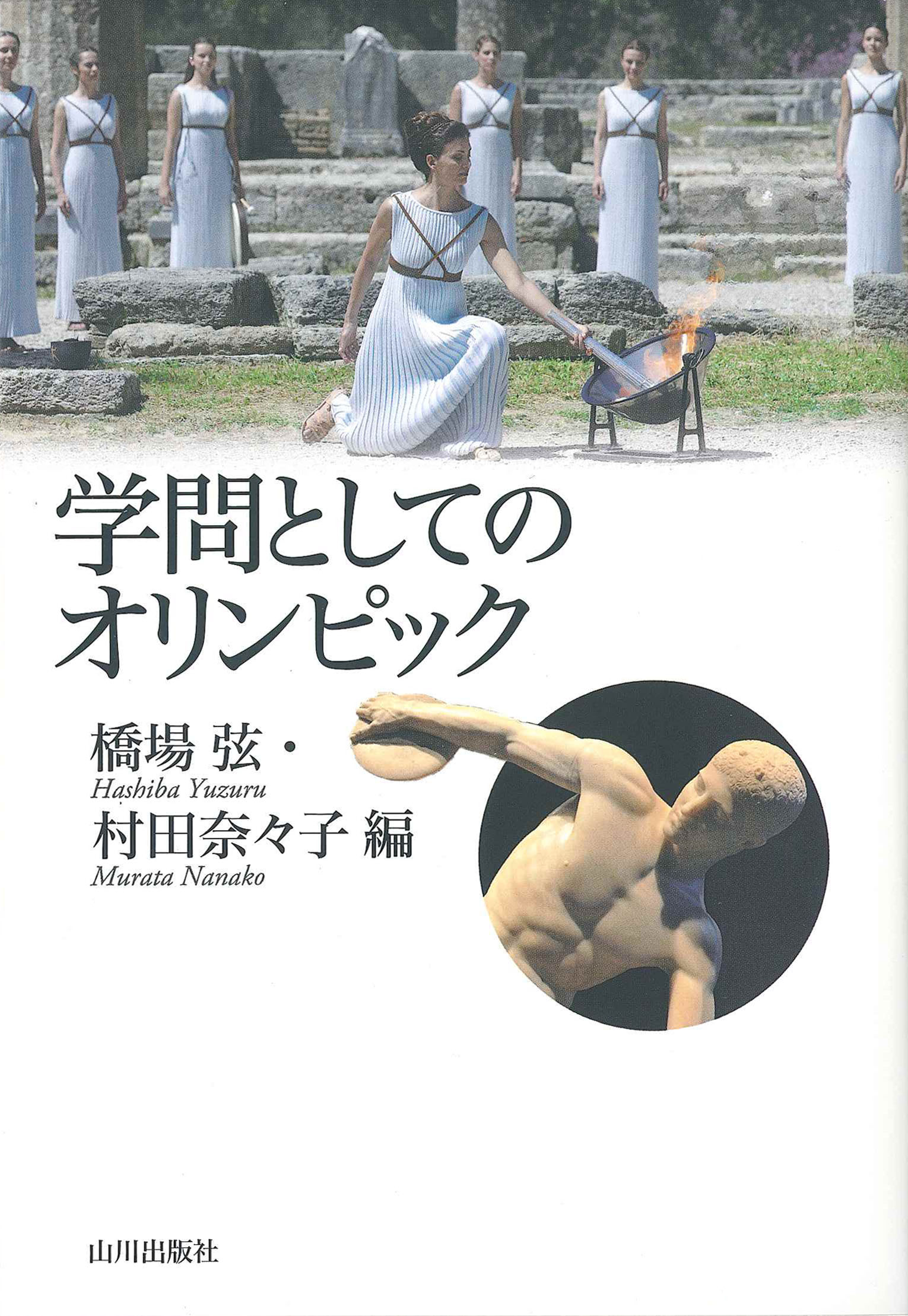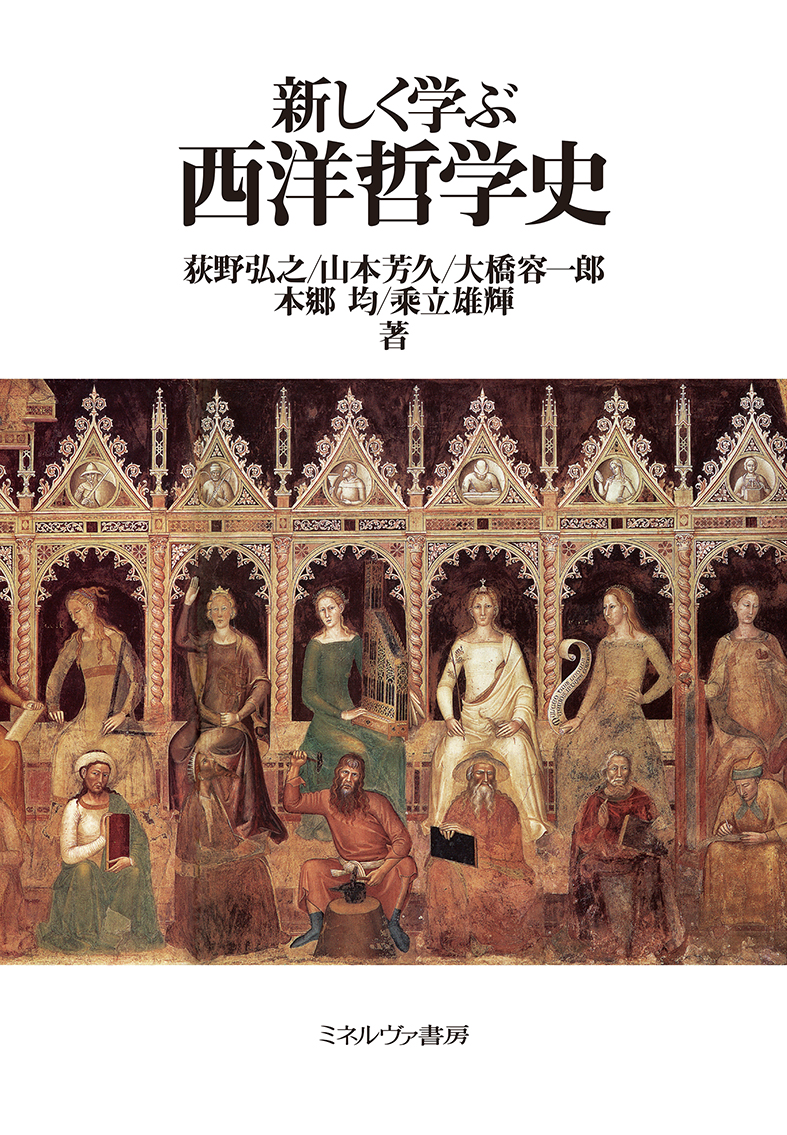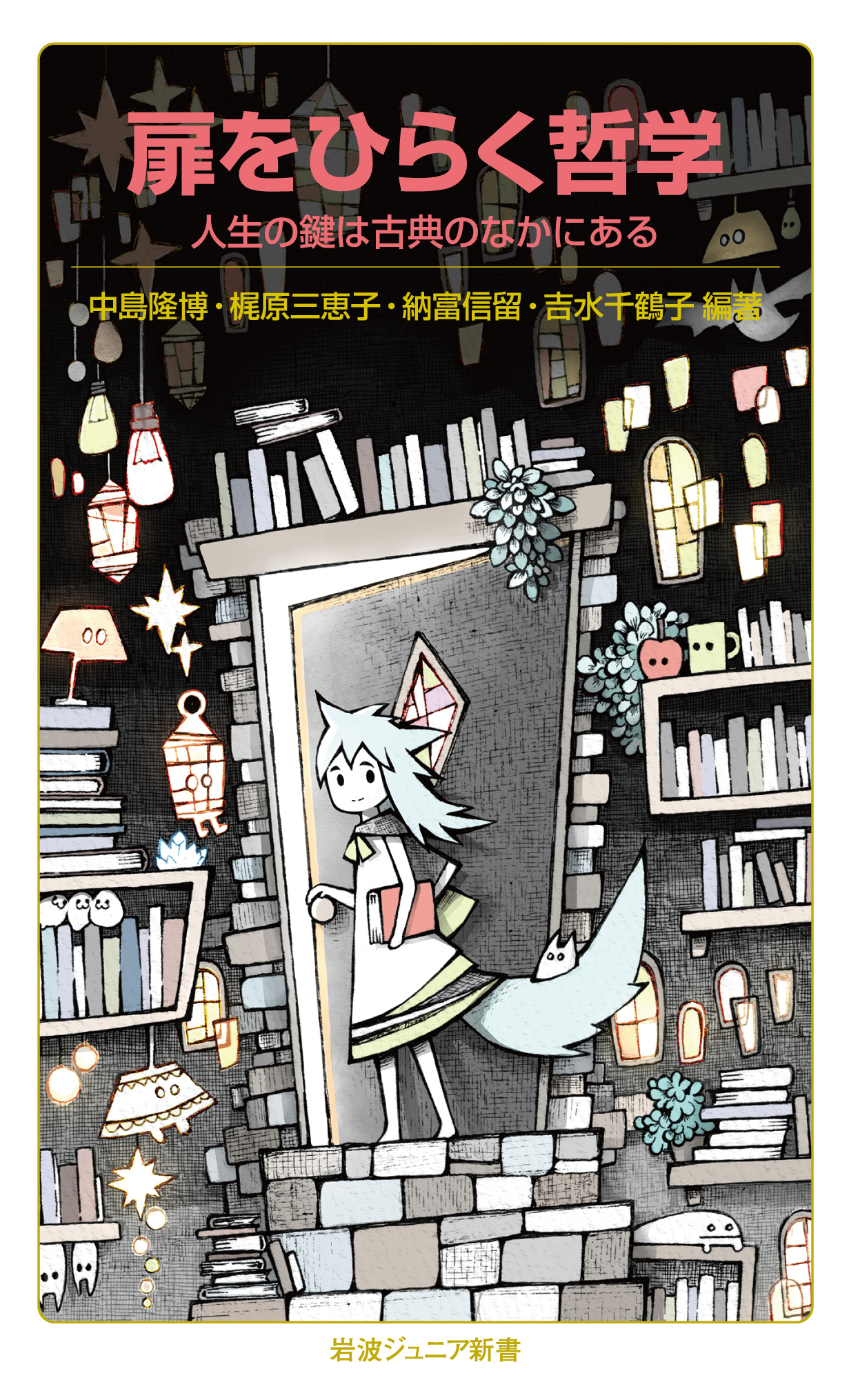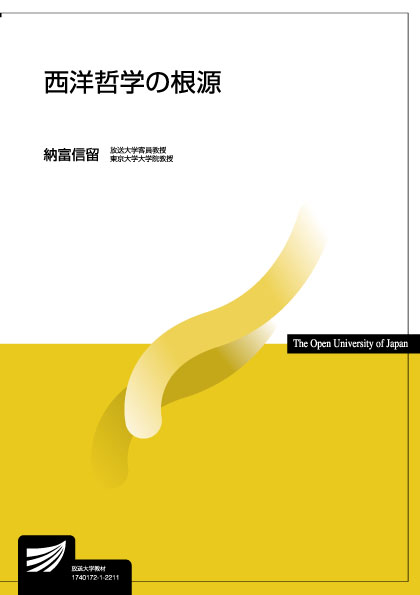
Title
Open University of Japan Teaching Materials Seiyou Tetsugaku no Kongen (The origins of Western Philosophy)
Size
256 pages, A5 format
Language
Japanese
Released
2022
ISBN
978-4-595-32318-8
Published by
Foundation for the Promotion of The Open University of Japan
Book Info
See Book Availability at Library
Japanese Page
Western philosophy originates in ancient Greece. This tradition has followed several paths and laid the foundation of the philosophy that we study today. What problems were raised, what arguments were exchanged, and what ideas were proposed? This book intends to provide a broad perspective on the importance of Greek philosophy. It was initially prepared as radio teaching material at the Open University of Japan. However, the general public can read it as an overview book together with A History of Greek Philosophy published by Chikuma Shobo and written by the same author in 2021.
The book comprises three main parts and fifteen chapters. The first part comprises two chapters. It defines and positions Greek philosophy as an introduction and presents the characteristics of each of the Greek philosophy’s four phases over 1,100 years.
The second part discusses the history of Greek philosophy from multiple perspectives. Each of the ten chapters here corresponds to a plot of this history. Each plot introduces ten philosophers or schools of philosophy (comprising 100 in total in 10 chapters) and traces the development of relevant philosophies.
Plot 1 titled “Presentation of Worldviews,” organizes various perspectives on the universe and world from the epics of Homer and Hesiod to the philosophy of Thales. Concepts such as order and nature play central roles.
Plot 2, “The Wisdom of Living Well,” reviews the traditions from the Seven Sages to Socrates and the skeptics who spoke of the wisdom of living well. This section’s themes include happiness, virtue, and pleasure.
Plot 3, “The Principle(s) of All Things,” introduces the explorations of “the principle,” from Thales and Anaximander, who inquired about the “archē (origin),” to Plato and Aristotle. It further discusses Pythagoreanism that sets number as the principle; atomism that recognizes only atoms and emptiness; and Neoplatonism that considers “the One” as the ultimate principle.
Plot 4, “The Conflict of Styles,” demonstrates the different narrative discourse styles used to develop philosophy including poets who spoke the language of God; the Ionian natural inquiry that proposed a human language different from the poet’s words; philosophers who used narrative forms such as aphorisms, orations, dialogues, letters, and autobiographies; and philosophers who left no writings behind.
In the following plots, the entire picture of Greek philosophy emerges through a multilayered division of the history of philosophy, as the same philosophers appear several times in Plot 5, “The Tension between God and Man”; Plot 6, “Care for the Soul”; Plot 7, “Metaphysics on Being”; Plot 8, “Logos and Persuasion”; Plot 9, “Questions about the Possibility of Knowledge”; and Plot 10, “The Study of the Search for Truth.”
The third part of the book summarizes the characteristics of Greek philosophy in terms of concepts such as “contemplation (theōriā)” and “competition (agōn).” It traces the reception of Greek philosophy from the Middle Ages to the present and examines its important role in modern Japan since the 19th century.
This book offers the reader an opportunity to learn about the significance and richness of Greek philosophy as the foundation of the Western and world philosophy.
(Written by NOTOMI Noburu, Professor, Graduate School of Humanities and Sociology / 2024)
Related Info
The Salon - Guest:NOTOMI Noburu (Professor, Dean, Graduate School of Humanities and Sociology) (Tokyo College | YouTube Jan 12, 2024)
https://www.youtube.com/watch?v=i8rbpZm7hXA
Intellectual innovation and cities, learned from Athens with diverse intellectuals (Hitachi Research Institute June 4, 2021)
https://www.hitachi-hri.com/english/reciprocal/i051.html



 Find a book
Find a book



